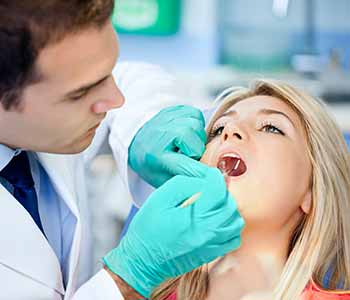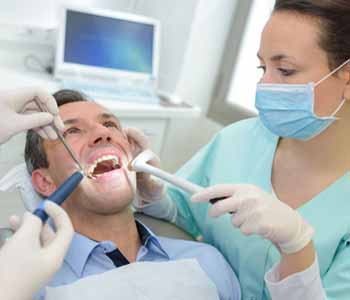Approximately half of adults over the age of 30 have gum disease in some form. This number increases with age. Signs of gum disease can be hiding behind an otherwise beautiful smile. Patients in the greater Philadelphia, PA area can turn to Dr. A to learn more about gum disease symptoms and treatment Dental Arts Group offer treatments to protect the health of patients’ mouths.
Gum disease symptoms
The gums are the soft, pink, supportive tissues at the base of the teeth. Healthy gums should be pink in color. If the gums become infected, they may appear red, swollen, or sensitive. Gum disease, or periodontal disease, starts out small and becomes more destructive as it spreads. This is a common cause of tooth loss in adults.
Gum disease does not just appear or worsen overnight. The symptoms arise and spread gradually. As plaque builds up on the teeth and is not removed, bacteria spreads into the gums. Left untreated, this leads to dental and health issues including periodontal disease or loss of teeth.
The three stages of gum disease range from mild to severe.
- Gingivitis is the first stage of periodontal disease. At this point, patients may experience red or sensitive gums. The gums often bleed easily when brushing or flossing the teeth. At this point, gum disease is reversible.
- During periodontitis, the gums begin to recede and pull away from the teeth. This causes gaps or spaces around the teeth where bacteria can enter and cause infections.
- Advanced periodontitis is the most severe stage of gum disease. This stage involves damage to the teeth, bones, gums, and connective tissue. The teeth may become loose and tooth loss is possible.
Avoid gum disease
Periodontal disease has serious consequences, but it can be prevented. Prevention is often the preferred method of treatment. Following good oral health habits and visiting your dentist regularly helps maintain the health of your teeth and gums. Dr. A and his team educate patients with tips for home oral care to improve overall wellness. Tips to protect the health of the gums include:
- Brush your teeth twice daily for two minutes each time. Brushing after meals is ideal, but morning and night are
- Floss daily to remove food particles that have accumulated between the teeth.
- Daily use of mouthwash or an oral irrigator helps cleanse hard-to-reach areas along the gumline.
- Replace your toothbrush or toothbrush head every three to six months. Broken or damaged toothbrush bristles do not effectively remove plaque.
- Visit your dentist as directed for routine cleanings.
Routine dental appointments are essential for keeping your mouth healthy and preventing gum disease. Patients with gum disease or other dental issues may need to see a dentist more frequently. Appointments are spaced in a manner that ensures potential problems can be handled quickly and effectively. If signs of gum disease arise, the condition can be treated before it escalates into a more serious problem.
Gum disease treatment

Patients who notice symptoms of gum disease should seek help from a dental professional right away. The earlier periodontal disease is addressed, the better the outlook. Early diagnosis and treatment can help prevent the disease from spreading. The treatment used depends upon the severity of the condition. The earliest stage of gum disease is reversible. At that point, the bone and connective tissues are intact and unharmed. This phase can be treated with a professional deep cleaning and maintaining good oral hygiene at home. Once gum disease has progressed beyond gingivitis, the condition is no longer reversible, but it can be maintained so it does not progress.
During routine appointments, the dentist will check for signs of irritated gums, gum recession, pockets in the gums, and loose teeth. Treatments for periodontal disease may include more frequent dental cleanings, scaling, root planing, and antibiotics. During a professional deep cleaning, a hygienist cleans the teeth to remove tartar above and below the gumline. Removing the plaque that houses bacteria prevents the toxins from spreading. Irregularities in the tooth are also smoothed out so it is harder for plaque to deposit. When necessary, antibiotics are used to treat the gum infection.
Gum disease is preventable. To learn more about gum disease symptoms and treatment, contact the team at Dental Arts Group in Philadelphia, PA. Call (215) 624-1935.


